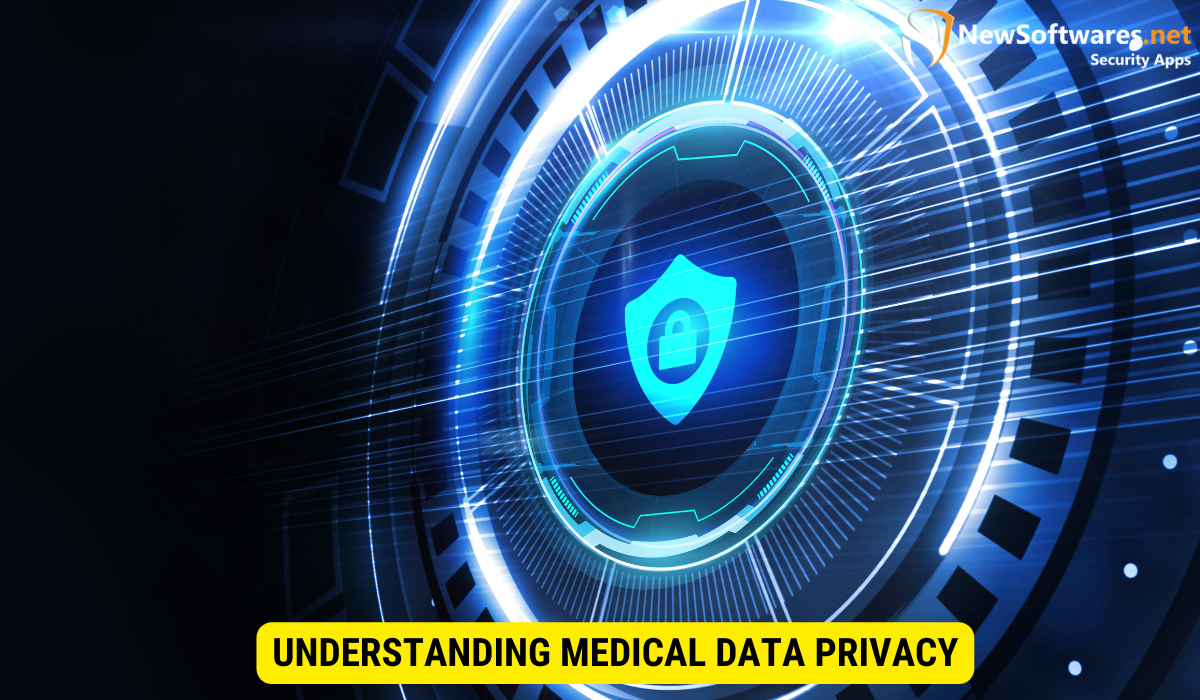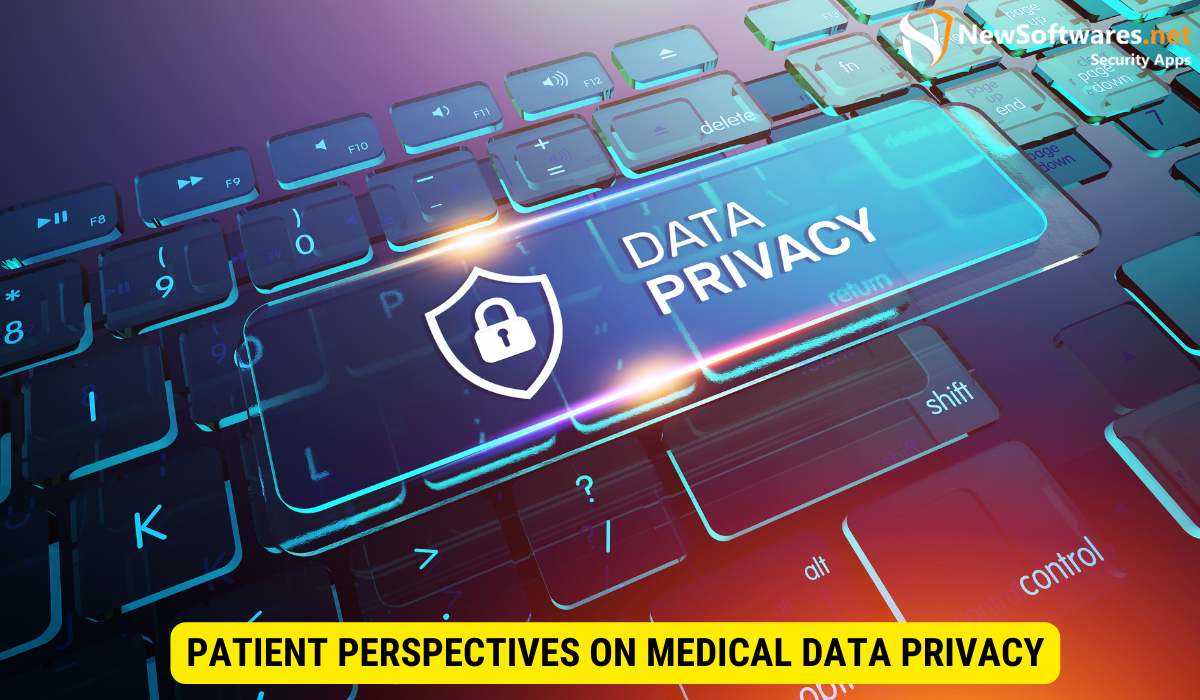Learn about the factors contributing to concerns over medical data privacy, including the importance of medical data privacy, the current state of medical data privacy, the rise of digital health records, key factors causing privacy concerns, the role of healthcare providers and institutions, and patient perspectives on medical data privacy.
Understanding Medical Data Privacy

Definition and Importance of Medical Data Privacy
Medical data privacy refers to the protection of a patient’s personal health information from unauthorized access, use, or disclosure. It is essential for maintaining trust and ensuring confidentiality in healthcare. When patients share their sensitive health data, they expect it to be safeguarded and used only for legitimate purposes.
Medical data privacy is crucial because it impacts not only an individual’s autonomy and control over their health information but also their willingness to seek care, share truthful information with their healthcare providers, and participate in medical research. Without adequate privacy protection, patients may be hesitant to disclose sensitive information, resulting in compromised healthcare outcomes.
Current State of Medical Data Privacy
Despite advancements in technology and increased digitalization of healthcare, the current state of medical data privacy is far from ideal. The healthcare industry faces numerous challenges related to protecting patient information from breaches and unauthorized access.
Incidents of data breaches and unauthorized access to medical records highlight the vulnerabilities of the system. Patient data can be exposed to malicious actors or inadvertently shared due to system vulnerabilities, inadequate security practices, or human error.
Additionally, with the proliferation of electronic health records and health information exchanges, there is a growing concern about the interoperability of systems and the potential for data leaks or unauthorized access during data sharing between different healthcare organizations.
The Rise of Digital Health Records
Transition from Paper to Digital
The healthcare industry has witnessed a significant transition from paper-based medical records to digital health records. This digital transformation aims to streamline healthcare processes, enhance patient care, and improve overall efficiency.
Digital health records offer numerous benefits, including easy accessibility, improved data accuracy, better care coordination, and efficient record sharing among healthcare providers. However, this digitalization also brings forth challenges, particularly concerning the privacy and security of medical data.
Benefits and Challenges of Digital Health Records
The benefits of digital health records are undeniable. Through robust information technology systems, healthcare providers can access patient records instantaneously, leading to timely diagnoses, reduced medical errors, and improved patient outcomes.
However, the transition to digital health records also raises concerns about data security. The increased reliance on technology and interconnected systems exposes patient data to potential breaches, hacking, or unauthorized access. Safeguarding electronic health records requires robust security measures, data encryption, access controls, and regular security audits.
Key Factors Contributing to Privacy Concerns
Technological Vulnerabilities
One of the primary factors contributing to concerns over medical data privacy is the presence of technological vulnerabilities. As healthcare providers adopt new technologies and implement electronic health record systems, they must also address associated privacy risks.
Outdated software, unpatched systems, weak network security, and inadequate training of staff can expose patient data to unauthorized access. Additionally, the increasing use of IoT devices, such as wearable health trackers and home monitoring systems, may present new vulnerabilities and potential points of entry for hackers.
Lack of Regulatory Oversight
An absence of comprehensive regulatory oversight exacerbates concerns over medical data privacy. While there are regulations in place, such as the Health Insurance Portability and Accountability Act (HIPAA), some argue that these regulations are outdated and fail to provide sufficient protection in the face of advancing technology.
A lack of standardized privacy regulations, inconsistency in enforcement, and the absence of penalties for non-compliance can lead to gaps in privacy protection. Adequate regulatory oversight is crucial for ensuring that healthcare organizations adhere to best practices and implement robust privacy measures.
Inadequate Data Encryption and Protection Measures
Inadequate data encryption and protection measures are another significant factor contributing to privacy concerns. Encryption plays a vital role in safeguarding patient data, making it difficult for unauthorized individuals to access or decode sensitive information.
However, healthcare organizations may neglect to implement encryption techniques or fail to update their security protocols regularly. This lack of encryption and other protective measures leaves patient data vulnerable to breaches.
The Role of Healthcare Providers and Institutions
Responsibilities in Protecting Patient Data
Healthcare providers and institutions have a crucial responsibility in protecting patient data and maintaining medical data privacy. They must implement comprehensive privacy policies, train employees on privacy best practices, and establish robust security measures.
It is vital for healthcare providers to prioritize patient trust and confidence by being transparent about their privacy practices, including how they collect, use, and protect patient data. Providers should ensure that patients have control over their information by obtaining informed consent for data sharing and offering options for opting out of information exchange.
Potential Breaches and Their Consequences
Healthcare providers must also be aware of the potential consequences of privacy breaches. In addition to legal and regulatory repercussions, such breaches can lead to reputational damages, loss of patient trust, and financial implications.
Breaches involving medical data can have severe consequences for affected individuals, ranging from identity theft and financial fraud to potential discrimination in areas such as employment, insurance coverage, and housing.
Patient Perspectives on Medical Data Privacy

Patient Trust and Expectations
Patients place significant trust in healthcare providers and institutions when sharing their personal health information. They expect their data to be treated with the utmost confidentiality and privacy.
However, concerns over medical data privacy and the potential misuse of personal information can erode patient trust. To regain and maintain trust, healthcare providers must actively address patient concerns through transparency, secure data management practices, and effective communication regarding privacy policies.
Impact of Privacy Concerns on Patient Behavior
Privacy concerns can also impact patient behavior, leading to potential hesitancy in seeking necessary medical care. Patients may withhold crucial health information, which can hinder accurate diagnoses and appropriate treatment plans.
Furthermore, privacy concerns may deter individuals from participating in medical research studies or sharing their health data for population health management purposes. This reluctance to contribute data can hinder advancements in healthcare and limit the potential for scientific discoveries that benefit society.
Key Takeaways
- Medical data privacy involves the protection of personal health information to maintain trust and ensure confidentiality in healthcare.
- The rise of digital health records brings numerous benefits but also raises concerns about data security.
- Factors contributing to privacy concerns include technological vulnerabilities, lack of regulatory oversight, and inadequate data encryption.
- Healthcare providers have a responsibility to protect patient data through robust privacy policies and security measures.
- Privacy concerns can impact patient behavior, including potential hesitancy in seeking care and reluctance to participate in medical research.
FAQs
What is medical data privacy?
Medical data privacy refers to the protection of a patient’s personal health information from unauthorized access, use, or disclosure.
Why is medical data privacy important?
Medical data privacy is important for maintaining trust, ensuring patient autonomy, and facilitating accurate diagnoses and treatment plans.
What are the key factors contributing to concerns over medical data privacy?
The key factors include technological vulnerabilities, lack of regulatory oversight, and inadequate data encryption measures.
What is the role of healthcare providers in protecting patient data?
Healthcare providers have a responsibility to implement privacy policies, training programs, and security measures to protect patient data.
How do privacy concerns impact patient behavior?
Privacy concerns can lead to hesitancy in seeking care and reluctance to participate in medical research, potentially hindering healthcare advancements.
Conclusion
Identifying the key factors contributing to concerns over medical data privacy is crucial in addressing the challenges faced by the healthcare industry. It is essential to maintain patient trust, implement robust security measures, and ensure adequate regulatory oversight to protect sensitive health information. By addressing the factors discussed, healthcare providers and institutions can uphold the importance of medical data privacy and instill confidence in patients, leading to a more secure and trustworthy healthcare system.
